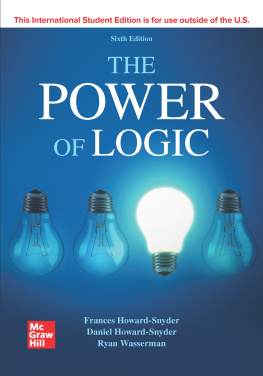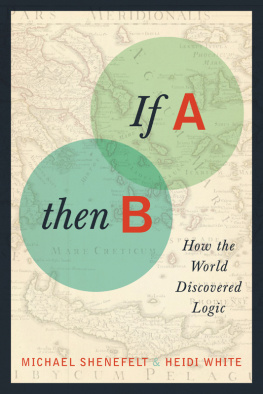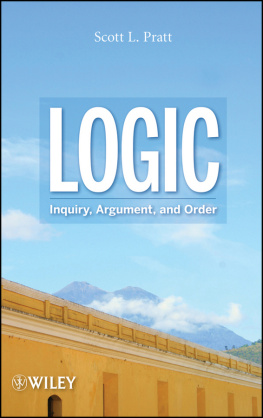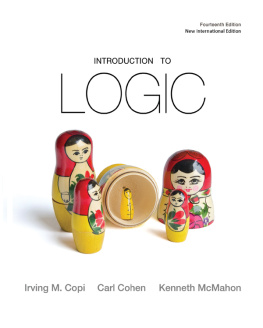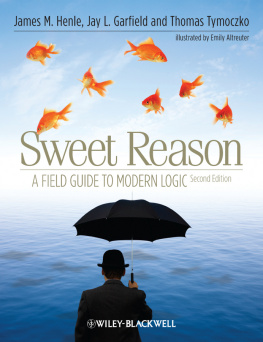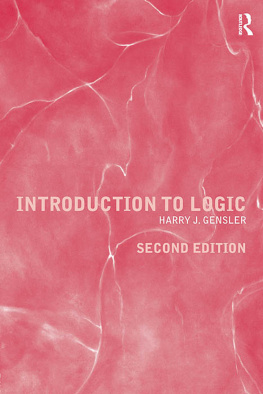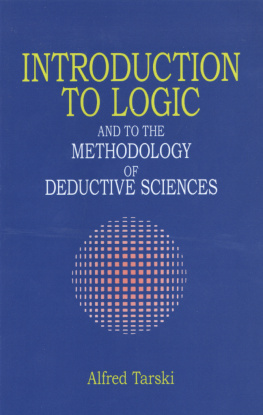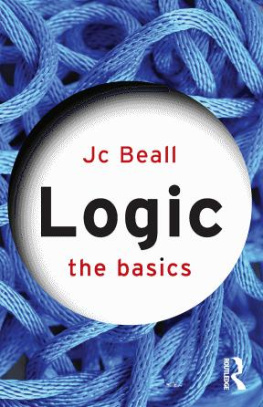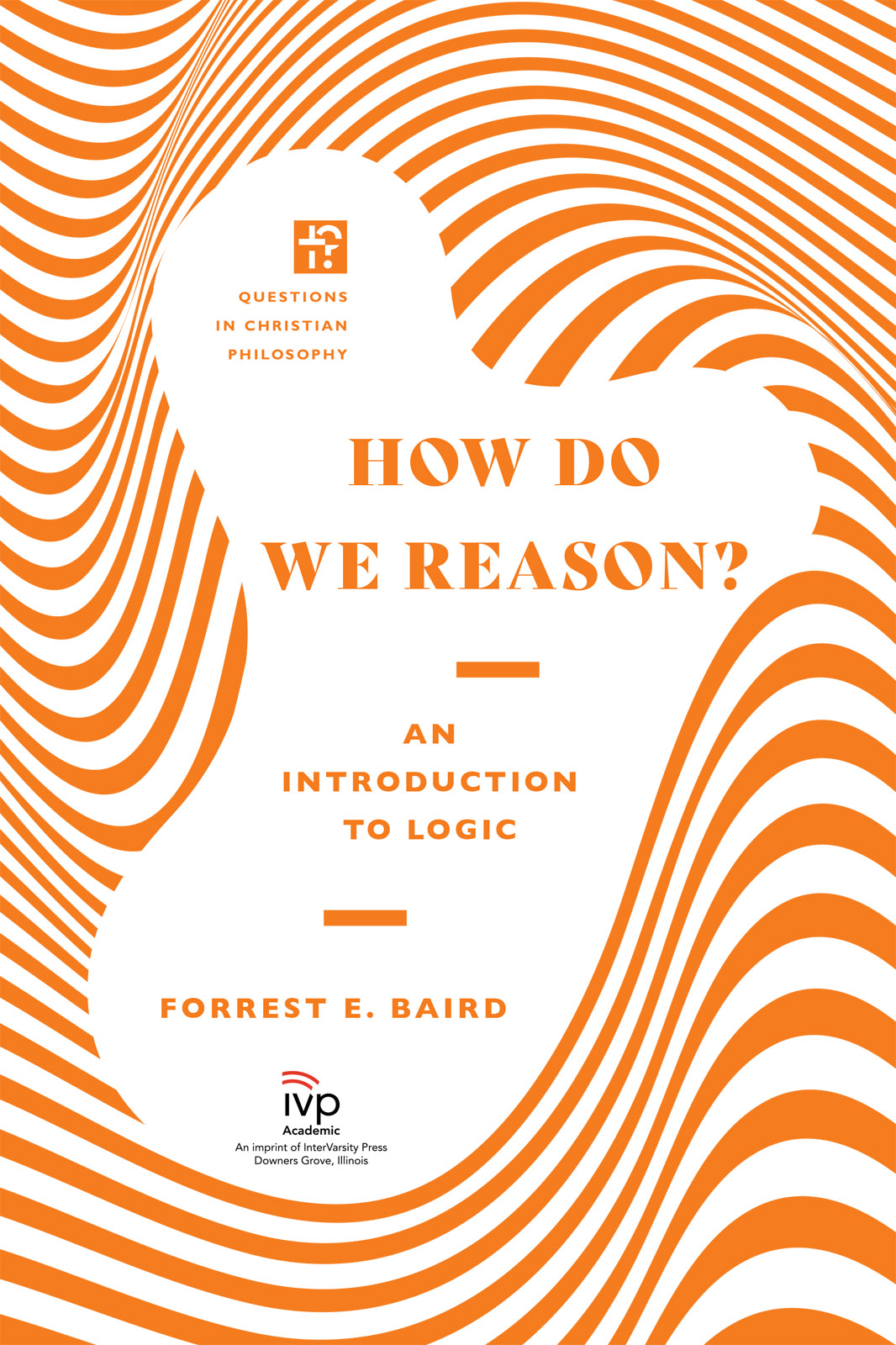Sommaire
Pagination de l'dition papier
Guide
InterVarsity Press
P.O. Box 1400, Downers Grove, IL 60515-1426
ivpress.com
2021 by Forrest E. Baird
All rights reserved. No part of this book may be reproduced in any form without written permission from InterVarsity Press.
InterVarsity Pressis the book-publishing division of InterVarsity Christian Fellowship/USA, a movement of students and faculty active on campus at hundreds of universities, colleges, and schools of nursing in the United States of America, and a member movement of the International Fellowship of Evangelical Students. For information about local and regional activities, visit intervarsity.org.
All Scripture quotations, unless otherwise indicated, are taken from The Holy Bible, New International Version, NIV. Copyright 1973, 1978, 1984, 2011 by Biblica, Inc.Used by permission of Zondervan. All rights reserved worldwide. www.zondervan.com. The NIV and New International Version are trademarks registered in the United States Patent and Trademark Office by Biblica, Inc.
The publisher cannot verify the accuracy or functionality of website URLs used in this book beyond the date of publication.
Cover design and image composite: David Fassett
Image: black and white op art: Dimitris66 / DigitalVision Vectors / Getty Images
ISBN 978-0-8308-5516-2 (digital)
ISBN 978-0-8308-5515-5 (print)
This digital document has been produced by Nord Compo.
Am I a tolerable master of the sciences? Have I gone through the very gate of them, logic? If not, I am not likely to go much farther, when I stumble at the threshold. Do I understand it so as to be ever the better for it [and] to have it always ready for use; so as to apply every rule of it, when occasion is, almost as naturally as I turn my hand? Do I understand it at all?... Rather, have not my stupid indolence and laziness made me very ready to believe, what the little wits and pretty gentlemen affirm, that logic is good for nothing? It is good for this at least, (wherever it is understood,) to make people talk less; by showing them both what is, and what is not, to the point; and how extremely hard it is to prove anything.
JOHN WESLEY (17031791)
ADDRESS TO THE CLERGY
SERIES INTRODUCTION
QUESTIONS IN CHRISTIAN PHILOSOPHY
JAMES K. DEW JR.
AND
W. PAUL FRANKS
C. S. Lewis once remarked that, Good philosophy must exist, if for no other reason, because bad philosophy must be answered. That is, many people today have embraced, often without even realizing it, an approach to knowing reality that undermines their ever coming to truly understand it. They draw inferences about everyday life, theorize about major events and developments in the world, and do all of this while blindly utilizing philosophical categories and tools. In other words, theyve embraced a philosophic method that generates bad philosophy. The cure is not to reject philosophical discourse altogether but to embrace good philosophy.
Thankfully there is more to good philosophy than simply answering bad philosophy. It also enables one to entertain questions that are central to ones worldviewquestions related to the nature of truth, the nature of goodness, and the nature of beauty. However, finding examples of those doing philosophy well can be difficult. And yet, given the importance of questions we are interested in, doing philosophy well is critical.
For this reason, a contemporary introductory series to the major questions in philosophy is incredibly valuable. IVP Academics Questions in Christian Philosophy series seeks to meet that need. It provides introductory volumes on the various branches of philosophy for students with little or no background in the discipline. Our authors have written their volumes with their students in mind. They dont presume prior philosophical training but instead provide careful definitions of terms and illustrate key concepts in ways that make philosophy tangible and useful for those who need it most. After all, it is not just professional philosophers who seek answers to philosophical questionsanyone attempting to love God with their mind will find themselves asking questions about the world God has created and seeking answers to them.
The authors have also approached their volumes in a way that takes seriously the claim that all truth, goodness, and beauty is found in God. That is, in undertaking Questions in Christian Philosophy, the authors are not merely engaging in these philosophical pursuits and then adding Jesus to the mix when theyre done. Instead, they are pursuing these questions out of a love and devotion to Jesus that not only guides the questions asked but also motivates attempts to answer them.
It is our hope that each volume in this series will not only help readers become acquainted with various approaches to important topics but will also encourage people in their devotion to our Lord.
PREFACE
Is it possible to be a rational, logical person of faith? Many would say no. Consider the following claims:
Faith is the enemy of reason. The one thing every single one of us here must be united in despising is faith. Its the barren refuge of the vacuous, the fearful, the frauds, and the obstacles to accomplishment.
Faith is the great cop-out, the great excuse to evade the need to think and evaluate evidence. Faith is belief in spite of, even perhaps because of, the lack of evidence.
Or more simply,
Faith is believing what you know aint so.
What these assertions have in common is the claim that faith, by its very nature, is without evidence and exists apart from or in opposition to reason. The listener is presented with a stark dichotomy. On the one hand, there is irrational faith, and on the other, reasonable unbelief. Look at the comments under an online article that touches on religion or go to one of the many atheist websites, and you will find this dichotomy repeated again and again:
Christians are Christians because, to put it as nicely as possible, [they] are just plain stupid. They might have successful careers, but anyone who believes their moronic fantasies has a terrible mental illness which is almost always incurable. What a waste of a life. These cowardly feeble-minded people are pathetic.
If believers accept this dichotomy, they are faced with a hard choice. They must choose between being unthinking, gullible believers or intelligent, logical atheists.
IRRATIONAL FAITH
Some Christians accept this dilemma and embrace the nonrational side of faith. They wear their lack of logical reasoning or engagement with secular thinking as a badge of honor. Other Christians are not as extreme in their denial of critical thinking but still shy away from engaging with reason and arguments. In some cases there is a fear that if we were to tackle the arguments of atheists and lose, we might lose our faith. Better to just stay away and ignore the onslaughts from the secular world. In other cases, it is simply lazy thinking. It is easier to claim discrimination on the basis of faith or to retreat to like-minded communities than to do the hard work of developing counterarguments to attacks on faith.
REASONABLE UNBELIEF
Those who set up the dilemma and hold to reasonable unbelief frequently make two arguments: one concerning knowledge (epistemology) and one about reality (metaphysics). The epistemological argument focuses on the need for evidence and runs something like this:




